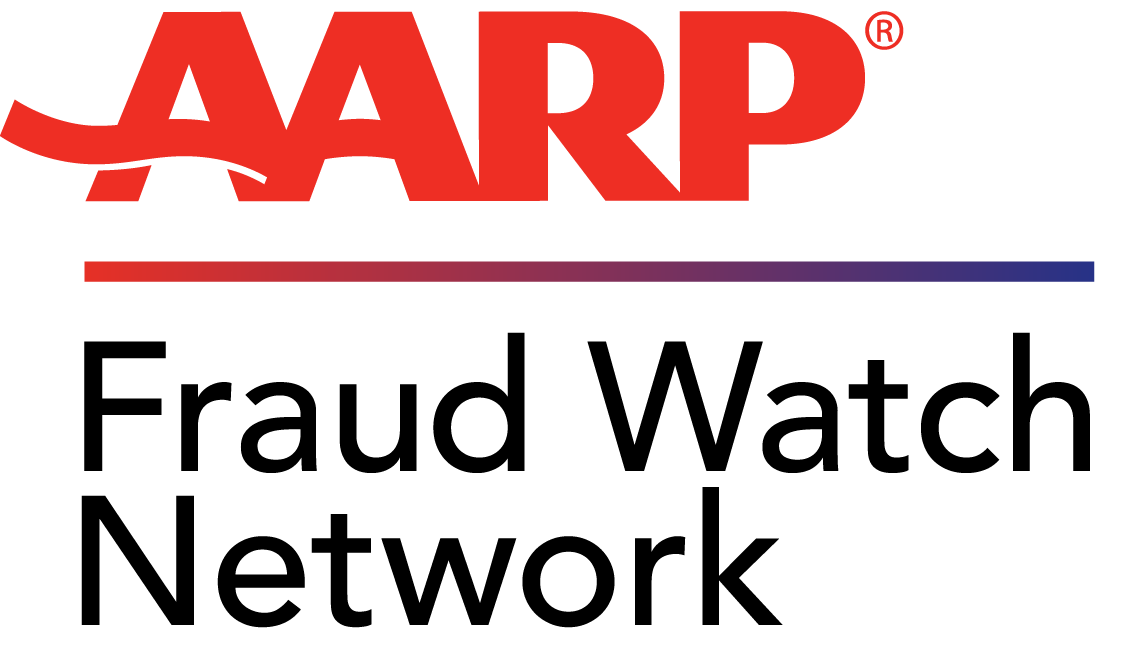AARP Hearing Center

Did you know that someone’s identity gets stolen every two seconds? The AARP Fraud Watch Network provides you with tips and resources to help you spot and avoid identity theft and fraud so you can protect yourself and your family. Our watchdog alerts will keep you up to date on con artists’ latest tricks. It’s free of charge for everyone: AARP members, non-members, and people of all ages. Be a fraud fighter! If you can spot a scam, you can stop a scam. Report scams to local law enforcement. Contact the AARP Fraud Watch Network at www.aarp.org/fraudwatchnetwork for more information on fraud prevention.
The AARP Fraud Watch Network is:
- An Educator: Get real-time alerts about the latest scams, tips on how to spot them, and the inside scoop on how con artists think so you can outsmart them before they strike.
- A Watchdog: Our nationwide scam tracking map gives you access to a network of people who've spotted scams and the opportunity to pass along your own experiences, so together we can beat con artists at their own game.
- A Resource: Get connected to a real live person trained in how to avoid fraud and advise you if you or a loved one has been scammed by calling our fraud hotline or attending a forum in your community.
- Free for Everyone: Anyone, of any age, can access our resources at no cost.

SCAM ALERT #1: Unemployment COVID scam:
According to the Federal Trade Commission, scammers have filed fraudulent unemployment claims using stolen identities of many US workers. This scheme is costing states millions of dollars.
If you receive a letter from your state unemployment agency stating you have been approved for benefits, alert your employer. Then report it to your state unemployment agency, note when you reported it and write down the case number for your records. Then visit www.identitytheft.gov to get information on next steps. You should request a copy of your credit report from each of the three credit bureaus at www.annualcreditreport.com. All agencies are offering free weekly reports online through April 2021. Finally, consider placing a fraud alert with the credit bureaus (contact one and the others will comply). This move will require a lender to notify you if someone is trying to take out a loan or open a credit card using your identity.

SCAM ALERT #2: Psychology of scams
One of the hardest things to understand about scams can be how victims become victims. When you hear about a scam secondhand, the red flags can seem obvious. What isn’t obvious in the retelling of the story is the intense emotional state scammers create. Today’s fraudsters are trained in psychological manipulation. They know how to get their targets out of their logical thinking and into an emotional state where logic goes out the window.
Scammers will keep their victims in the ether as long as they can; many will never see the signs until it is too late. Understanding these tactics can help you avoid scammers and help friends and loved ones who might be in this situation.

SCAM ALERT #3: COVID Contact tracing scams
The Coronavirus has created a perfect storm for scammers. One unique scam to arise this summer is scammers posing as contact tracers working for state health departments.
Contact tracing is an important part of efforts to slow the spread of the coronavirus. Approaches to contact tracing will vary by state; but know in all states, legitimate tracers will never ask for money, bank account information, Social Security Numbers, credit card numbers, or medical insurance information. You may receive a text from a contact tracer to inform you they will be in contact by phone. If a text like this tells you to click a link, it’s a scam. Clicking will download software on your device to access personal and financial information. When in doubt, don’t act before contacting your state health department to find out what process they are using.

SCAM ALERT #4: Tech Support – COVID scams
It’s back to school season in the time of coronavirus, and for many families it means more working from home and attending school from home. Scammers will take advantage of this to scare people into thinking their device has been attacked by malicious software – a nightmare for workers and students alike.
The “tech support” scam typically involves a phone call with someone claiming to be with Microsoft, Dell, or another well-known tech company, claiming they have identified a virus on your computer. Or, you will see a pop up message on your computer with a phone number to call right away to deal with a virus. In both scenarios, the scammer’s goal is to get you to allow them to access your computer remotely in an effort to steal financial and personal information. If tech support calls, it’s a scam. If you get the popup and your computer freezes, simply shut down and restart your computer and it should go away.































































